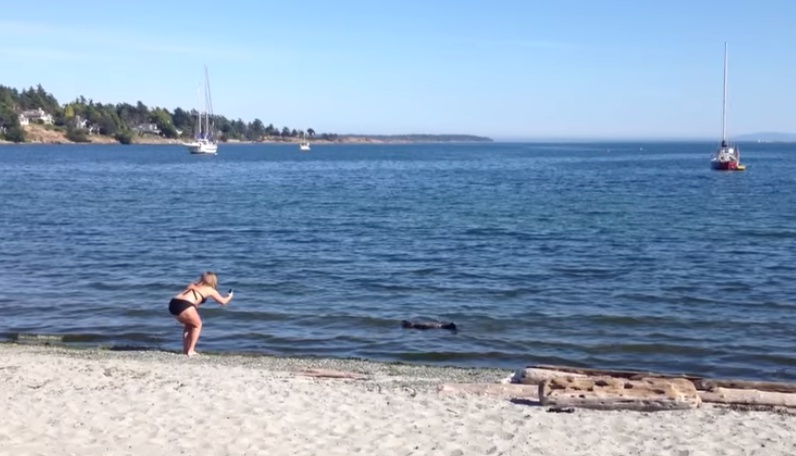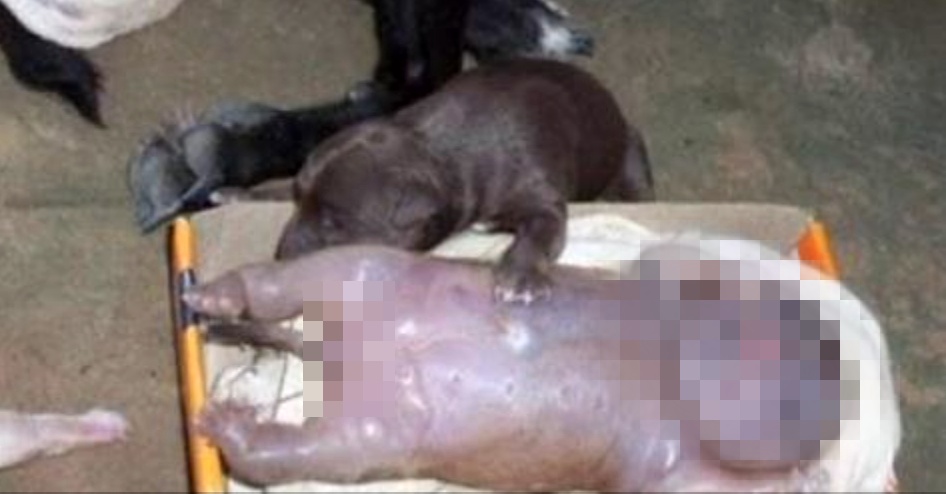The standoff was a clash of wills, the forest holding its breath, its creatures silenced by the tension. The solitary wolf, old but fierce, had dared to defy the forest’s king to protect a helpless human. The bear swayed, its massive paws shifting, uncertain, weighing the risk of battle with so determined a foe. It wasn’t desperate enough to fight for such a prize, its hunger not worth the wounds this wolf might inflict. With a final, grudging roar, more bluster than threat, it dropped to all fours, turned, and lumbered away, crashing through the brush, branches snapping in its wake.
The wolf stood rigid, its body tense, tracking the bear’s retreat until the sounds faded into the distance, swallowed by the forest’s depths. Only then did it relax, shaking its fur as if casting off the encounter, and returned to David’s side. It nudged his hand, a gentle reassurance, its warmth a contrast to the cold dread that had gripped him. David opened his eyes, tears spilling not from pain but from awe and gratitude. A creature deemed a savage predator by men had risked its life for him, a bond forged in the wild that defied all he’d known. He couldn’t touch the wolf, couldn’t speak, but his gaze held everything—gratitude, wonder, a plea for it to stay.
The wolf settled beside him, its head resting on its paws, ears alert, its presence a quiet promise. David’s mind churned, replaying the moment, the wolf’s courage a mirror to the strength he’d lost. He thought of his workshop, now silent, its tools gathering dust; of Linda’s laughter, a ghost of a life that no longer existed. The wolf’s loyalty was a stark contrast to her betrayal, a reminder that compassion could come from the wild, where he’d least expected it.
Meanwhile, in Clearwater, the annual Harvest Fair was unfolding under a crisp autumn sky. Smoke from grills curled upward, carrying the rich aroma of smoked brisket, roasted corn, and apple pies cooling on checkered cloths. Women in festive aprons bustled between homes, their voices a lively hum as they swapped recipes and stories of the season’s bounty. Children darted through the square, chasing hoops or tugging at their mothers’ skirts, their laughter bright against the strums of a fiddler’s tune. Men gathered under the town’s great oak, its leaves a blaze of crimson and gold, discussing the harvest, the coming winter, and the latest news from nearby Sandpoint.
But Thomas, a thoughtful man who’d worked the mill with David for years, felt a gnawing unease that dimmed the fair’s joy. He hadn’t seen David for days, an absence that gnawed at him. On fair days, Linda typically wheeled David onto the porch, where he’d sit, his eyes brightening at the sight of familiar faces. Thomas made a point to stop by, sharing tales of the mill or the forest, and David’s grateful gaze, though his voice was weak, was a comfort. Today, the porch was empty, the house unnaturally still. “Something’s not right,” Thomas muttered to himself, his unease growing as he recalled Linda’s recent coldness, her sharp words to neighbors, her eyes like a frozen pond.
By noon, the silence grew too loud to ignore. Thomas crossed the path, his boots scuffing the dirt, and found the door slightly ajar. He knocked, but no answer came. He pushed the door open, stepping into a space that felt more like a mausoleum than a home. The air was cool, sterile, the house immaculate to a fault—lifelessly clean, as if no one had lived there in weeks. A pitcher of milk sat on the table, its surface skimmed with cream, beside a wedge of cornbread, untouched and stale. Linda sat on a bench by the window, staring blankly ahead, her face taut, her hands clenched in her lap. Her eyes, usually sharp with irritation, were dull, but a flicker of tension betrayed her calm.
“Linda,” Thomas said cautiously, his voice soft but firm, “where’s Dave? Haven’t seen him.”
She turned slowly, her movements deliberate, her face a mask of cold detachment. “He’s gone,” she said, her voice flat, devoid of grief. “Died in his sleep last night.”
Thomas’s stomach lurched, his heart sinking like a stone. “Gone? When? Why didn’t you tell anyone? We could’ve helped, given him a proper burial.” His voice cracked, disbelief warring with sorrow. David was a cornerstone of Clearwater, a man whose wisdom and kindness had shaped the town. To die so quietly, without word, felt wrong.
“I took care of it,” Linda replied, her tone hollow, her eyes unblinking, fixed on some distant point. “Buried him out back. Didn’t want to bother folks during the fair. He was quiet in life; he left quiet. No need for fuss.”
Her words rang false, her calm unnatural, like a veneer over something darker. To bury David—a man beloved by all, who’d once carved the town’s church pews—behind the house like a stray, without a service, without mourners, was unthinkable. Thomas’s suspicion hardened. “Show me the grave,” he demanded, his voice sharp, his eyes narrowing.
“There’s nothing to see,” Linda snapped, a crack in her composure, her voice rising with a defensive edge. “I buried him. Go join the fair, Tom, and let me grieve.” She turned away, her shoulders rigid, signaling the end of the conversation.
Thomas stepped outside, a chill of dread creeping through him, his mind racing. He circled the house to the garden, his boots sinking into the soft earth. The ground was undisturbed, no trace of a grave, no mound or marker. The grass lay flat, untouched by shovel or sorrow. Then a memory surfaced, sharp and damning: the previous evening, at twilight, he’d seen Linda pushing a cart toward the forest, her face grim, her steps purposeful. He’d thought it odd—a woman alone, heading into the wild so late—but dismissed it, distracted by the fair’s preparations. Now, the truth hit like a thunderbolt: she hadn’t buried David. She’d taken him, alive, to the woods to die.
Horror gripped him, his pulse pounding in his ears. He sprinted to the men gathered by the oak, their laughter fading as they saw his ashen face. “Dave’s missing!” Thomas shouted, breathless, his voice raw with urgency. “Linda claims he died, says she buried him out back, but it’s a lie. I saw her last night, taking him into the forest in a cart.”
The men’s jovial chatter died, their faces hardening, eyes narrowing as they processed his words. They knew Linda’s cold demeanor, her sharp tongue, the way she’d treated David since his illness. Whispers of her neglect had long circulated, but this—this was monstrous. “The forest?” Benjamin, a burly blacksmith with hands like iron, asked, his voice low, incredulous. “Left him alone, sick as he is?”













